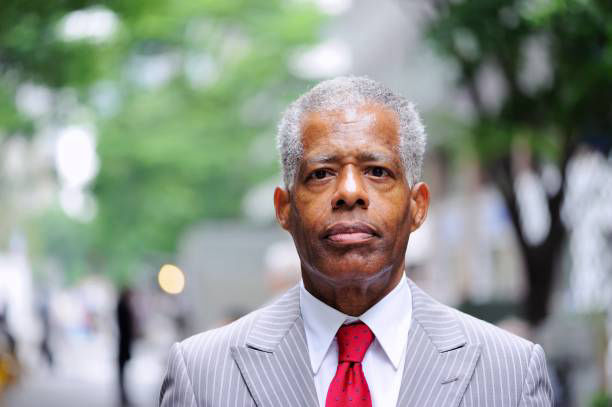Leadership often takes many forms. Some leaders move quietly, shaping change from the shadows, while others make their impact through raw honesty, confrontation, and unapologetic authenticity. Eric Mays, a figure known for his unmistakable voice in local government and his passionate defense of community interests, represents the latter. His career has become a reflection of both the triumphs and the tensions that define modern public service — balancing duty, personality, conflict, and conviction.
This article explores the life, personality, influence, and lessons associated with Eric Mays — a man who carved his name into political history not through perfection, but through persistence, individuality, and his unrelenting commitment to representing the people who elected him.
Early Life and Foundations of Character
Eric Mays’ story begins in a community that shaped his values long before he ever entered politics. Born and raised in an environment that demanded resilience and adaptability, he grew up witnessing both the struggles and strengths of his city. From a young age, Mays learned that leadership was not simply about holding a title but about standing up when others stay silent.
In his formative years, he developed a deep sense of responsibility toward fairness and truth. Teachers and peers often described him as outspoken and inquisitive — traits that would later define his public image. Instead of shying away from conflict or challenge, he confronted issues head-on, driven by a strong sense of justice.
His early education and exposure to political discourse cultivated a lifelong fascination with governance, representation, and accountability. These foundations set the tone for his future as a city leader — one who would not bend easily to pressure or political conformity.
Entrance into Public Service
Eric Mays’ foray into politics stemmed from his passion for civic engagement and his belief that real change begins at the community level. He started his career as an advocate for local residents, volunteering for neighborhood initiatives and participating in city council meetings as a citizen voice long before he held an elected position.
This grassroots involvement gave him a firsthand understanding of the challenges ordinary people face — from unemployment and infrastructure issues to water quality and social equity. Unlike many politicians who enter public service through privilege or influence, Mays built his foundation on direct experience with the problems he sought to solve.
His political journey was not a straight path of success. He faced setbacks, criticism, and opposition, yet he consistently returned to serve. Each failure became a lesson, and every controversy, no matter how intense, contributed to his understanding of political endurance.
Leadership Style and Political Philosophy
Eric Mays’ leadership style is anything but conventional. He combines direct communication, confrontational honesty, and populist advocacy — a blend that often sparks intense reactions from supporters and critics alike.
At the core of his philosophy lies a belief that transparency and accountability outweigh decorum and diplomacy. He refuses to compromise his integrity for political comfort, often challenging both opponents and allies when he perceives injustice or mismanagement. This unfiltered honesty has made him both respected and controversial, depending on which side of the debate one stands.
His style can be summarized by three defining traits:
| Trait | Description | Public Impact |
|---|---|---|
| Authenticity | Speaks directly and emotionally, often disregarding political correctness. | Builds strong connection with local citizens who value honesty. |
| Persistence | Fights relentlessly for issues affecting his community. | Seen as a champion for the underrepresented. |
| Courage | Challenges authority, even at personal or political risk. | Gains admiration for integrity; sometimes faces disciplinary backlash. |
Mays’ style may not fit traditional molds, but it resonates with those who see politics as too sanitized or detached from reality. In many ways, his demeanor serves as a reminder that democracy thrives not on silence but on the friction of ideas.
Representation and Community Engagement
Throughout his tenure, Eric Mays has been recognized as a vocal defender of community concerns, particularly in addressing issues that affect working-class citizens and marginalized neighborhoods. His ability to communicate directly with residents has made him both approachable and effective.
Unlike politicians who rely solely on speeches or media, Mays is known to spend time in the community — listening to residents, attending neighborhood events, and engaging in open discussions. He views leadership as a two-way relationship, not merely a top-down structure.
This approach reinforces his image as a “people’s politician.” Supporters admire his readiness to take public stands on controversial matters and his consistent emphasis on justice and transparency.
For many constituents, Mays is not just an elected official but a symbol of persistence — someone who does not back down in the face of adversity, and who speaks truth to power regardless of personal cost.
Controversies and Public Perception
No political career is without turbulence, and Eric Mays’ journey has been marked by numerous controversies — moments where his fiery temperament clashed with institutional decorum. Whether during heated council meetings, public disagreements, or media appearances, Mays has often been the center of attention.
To his detractors, he can appear disruptive or unpredictable, a politician who challenges authority to a fault. To his supporters, however, these same moments demonstrate courage and individuality — proof that he prioritizes truth over political convenience.
Controversy, in Mays’ case, functions as both a challenge and a tool. While critics focus on his unconventional methods, he uses attention as a platform to highlight underlying issues that might otherwise be ignored. He turns confrontation into conversation, forcing the public and the media to look deeper at the issues beneath the surface.
| Controversy Type | Public Response | Outcome |
|---|---|---|
| Heated council exchanges | Mixed – supporters saw passion, critics saw disruption | Increased media attention and public awareness |
| Legal or procedural disputes | Divided public opinion | Strengthened his image as a defiant figure |
| Political reprimands | Institutional criticism | Boosted grassroots sympathy |
In many ways, Mays embodies the dual nature of modern politics — the tension between institutional rules and authentic representation. His life reminds us that democracy is often messy, emotional, and imperfect — yet still deeply human.
Contributions to Civic Governance
Beyond controversy and personality, Eric Mays’ legacy lies in his dedication to public service. He has championed policies aimed at improving infrastructure, water management, and community welfare. His consistent advocacy for transparency in government budgeting and resource allocation has earned him respect even from those who disagree with his approach.
He is particularly known for his emphasis on local accountability — ensuring that city decisions reflect residents’ actual needs rather than external interests. This grassroots orientation often pits him against bureaucratic inertia, but it reinforces his central belief: governance should always serve the governed.
He has participated in various committees, community boards, and advisory councils, focusing on areas such as:
- Environmental justice and public health
- Economic opportunity for disadvantaged groups
- Housing fairness and rehabilitation of neglected neighborhoods
- Fiscal responsibility in city spending
These initiatives have had tangible impacts, improving local systems and inspiring younger generations to consider civic engagement as a tool for empowerment.
Communication Style and Media Presence
Eric Mays’ communication style is one of his defining characteristics. His speeches are raw, emotional, and unscripted — a reflection of his unfiltered personality. He communicates as though speaking directly to the people rather than through the polished lens of political performance.
This authenticity has made him a popular figure beyond local politics, as clips of his speeches and council sessions often circulate widely. While some observers find his approach unconventional, others see it as refreshing honesty in a political world too often dominated by rehearsed language.
He leverages media, intentionally or not, to make civic issues accessible to wider audiences. By speaking plainly, sometimes humorously, and occasionally provocatively, he brings attention to local governance that might otherwise remain unnoticed.
His communication model teaches a vital lesson: political engagement grows when people see themselves represented in leadership.
The Philosophy of Resilience
At the heart of Eric Mays’ public life lies one consistent thread — resilience. Regardless of personal challenges or political adversity, he continues to return to the same mission: to serve, to speak, and to stand.
Resilience, in his context, means not just enduring criticism but using it as fuel for purpose. Many of his supporters view his ability to withstand public scrutiny as symbolic of the endurance required of all citizens fighting for fairness and recognition in a complex system.
| Dimension of Resilience | Example | Impact |
|---|---|---|
| Personal Endurance | Continues serving despite criticism or penalties | Inspires public admiration for tenacity |
| Political Persistence | Maintains focus on community issues despite opposition | Builds long-term trust among constituents |
| Emotional Integrity | Speaks authentically under pressure | Reinforces image of honesty and courage |
Through resilience, Mays transforms political tension into moral conviction. His persistence becomes not just a personal trait but a message — that democracy demands voices willing to endure discomfort for the sake of truth.
Public Legacy and Symbolism
Eric Mays represents more than his own career; he has become a symbol of grassroots politics and authentic representation. In a political landscape often accused of elitism and disconnect, Mays’ bold presence serves as a reminder that politics still belongs to the people.
His story is also a study in the power of imperfection. Unlike sanitized portrayals of leadership, his life demonstrates that authenticity often comes with controversy — but also with trust. People may disagree with his methods, but few can question his sincerity.
For his community, Mays is not just a councilman or public figure; he is a mirror of their struggles and resilience. His name stands for a form of leadership that refuses to blend into conformity, reminding society that disagreement is not division — it is the lifeblood of democracy.
Comparative Leadership Analysis
To understand Mays’ style more deeply, it helps to compare him with broader archetypes of political leadership.
| Leadership Type | Characteristics | Mays’ Position |
|---|---|---|
| Technocratic Leader | Focused on data, efficiency, and management. | Contrasts with Mays’ emotional, people-driven style. |
| Diplomatic Leader | Prioritizes consensus and calm negotiation. | Mays often prefers confrontation for truth. |
| Populist Leader | Appeals directly to citizens, bypassing institutions. | Closely aligns; emphasizes community voice. |
| Ethical Leader | Focused on justice, equality, and integrity. | Strong alignment with Mays’ moral positions. |
Through this lens, Eric Mays can be seen as a hybrid — a populist-ethical leader whose authenticity and moral courage define his political identity.
Lessons from Eric Mays’ Journey
There are several enduring lessons one can draw from Eric Mays’ public life. These lessons transcend politics, offering guidance for leadership, integrity, and perseverance.
- Authenticity Matters More Than Perfection: Mays shows that people respect honesty over polish. Being genuine builds deeper trust than rehearsed charisma.
- Conflict Is Part of Progress: Progress rarely comes without tension. Mays’ readiness to confront difficult issues proves that debate is necessary for democracy.
- Resilience Defines Leadership: Adversity does not destroy a true leader — it reveals their strength. Mays’ ability to continue despite obstacles highlights endurance as a virtue.
- Community Engagement Builds Legacy: Staying connected to the grassroots ensures that leadership remains relevant and grounded.
- Voice Is Power: Mays’ fearless communication underscores the truth that silence in leadership is more dangerous than disagreement.
Each of these principles underscores why Eric Mays remains a lasting figure of public fascination and civic influence.
Conclusion: A Legacy of Grit and Genuineness
The story of Eric Mays is not just the story of one politician; it is the story of democratic persistence, individuality, and courage. His life encapsulates the reality that leadership is rarely tidy. It is emotional, unpredictable, and human — but it is also transformative when guided by integrity.
Mays stands as a reminder that public service is not about fitting a mold; it is about serving with sincerity, regardless of how messy or imperfect that service may appear. His journey continues to inspire conversations about authentic leadership, accountability, and the role of personality in politics.
In an era when trust in institutions often falters, figures like Eric Mays remind us that the essence of democracy is not found in flawless rhetoric but in fearless representation — leaders who, despite everything, keep standing, keep speaking, and keep serving.
Frequently Asked Questions (FAQs)
1. Who is Eric Mays?
Eric Mays is a public servant and political figure known for his outspoken leadership style, community advocacy, and commitment to transparency.
2. What makes Eric Mays’ leadership unique?
His authenticity, emotional honesty, and willingness to challenge authority distinguish him from traditional, cautious political figures.
3. Why is Eric Mays considered controversial?
His confrontational communication style and refusal to conform to political decorum often spark public debate and institutional criticism.
4. What are Eric Mays’ major contributions?
He has consistently advocated for fairness in governance, community welfare, local accountability, and environmental justice.
5. What lessons can be learned from Eric Mays’ career?
His journey teaches the importance of authenticity, resilience, and courage in standing for one’s beliefs despite adversity.











